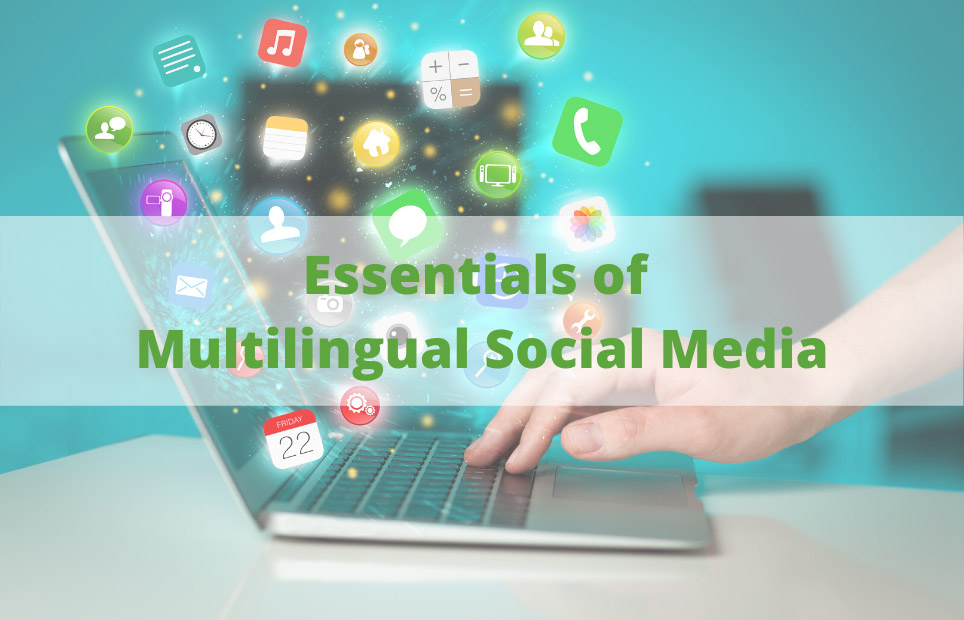Social media platforms are excellent tools for promoting your brand around the world. However, to truly internationally promote your brand, it’s essential that your content is suitable for your target audiences. Of course, this means having content that will resonate with and attract your audience, but it also relates to actually speaking your audience’s language. Multilingual social media can help your business access new and exciting markets that you may well have been missing out on with a monolingual social media policy. However, managing multilingual social media platforms can have its issues, so here’s what you need to consider.
Translation, Localization and Engagement
A successful social media platform is key to your brand online, and engagement is key to running a successful social media platform. Engagement is crucial in modern marketing so your approach to multilingual social media should consider it a priority. Getting real engagement from social media can be difficult and there’s no real hard and fast rule for it, but engaging and localized translations of posts will definitely help.
A poor translation is arguably worse than no translation at all, so it is important to invest in an expert translator who can help you understand how your target market thinks. This means avoiding erroneous machine translations and, instead, using content that reflects the cultural context of your audience, with relevant phrasing to show that you understand them as a customer.
Having a Consistent International Brand Identity
While it’s important that your multilingual social media strategy reflects the differences in your audience’s cultures and languages, it’s also important to make sure that your brand is consistent. This can sound almost like a paradox and it is indeed difficult if you think small picture, but to help make matters easier, you should make sure that your translator not only understands your target audience but also understands you as a brand and how you want to be presented, making sure the core essence is the same.
Reflecting Your Brand with a Bilingual Social Media Manager
Social media management isn’t just related to posting content, it’s ultimately about engaging with your followers. As such, it’s important to have multilingual staff who can naturally respond to comments or complaints, be it on Facebook, Twitter or Instagram. For instance, if you have a Spanish Facebook account, it’s imperative that you have a Spanish native speaker as a social media manager who can interact with your followers to ensure engagement is natural, making sure that you understand your followers better and that they are more likely to use your services. If you don’t have staff who can readily respond in their various native languages, then you will likely be very slow to respond to your followers, thus harming your engagement.
Having Separate Accounts for Different Languages
While your company may be multilingual, not all of your followers will be. Posting content in, say, Portuguese on your English Twitter will likely alienate your followers and harm engagement. Make sure to have different accounts for each language on each platform and keep them separate to improve engagement and reduce confusion.
Localizing Hashtags
Hashtags are wonderful tools that act as a form of free promotion and they can be very helpful if used correctly. They also vary from language to language so make sure to research the correct hashtags and use them in the correct respective languages for the most relevant outreach and engagement.
Of course, having interesting content is also key but without good multilingual social media management, you risk missing out on key engagement.
Are you ready to speak to your multilingual audience?
Producing great content in another language takes time and commitment. We can help you expand your reach and establish a connection with an audience that speaks Spanish or Portuguese. If you’d like to find out more about our service, visit Multilingual Social Media.








